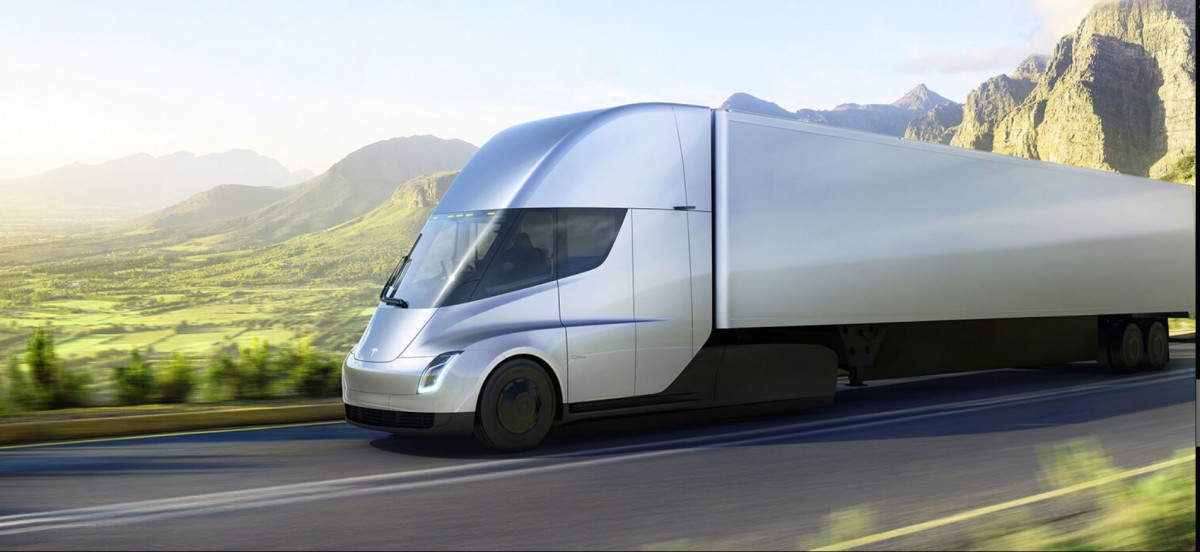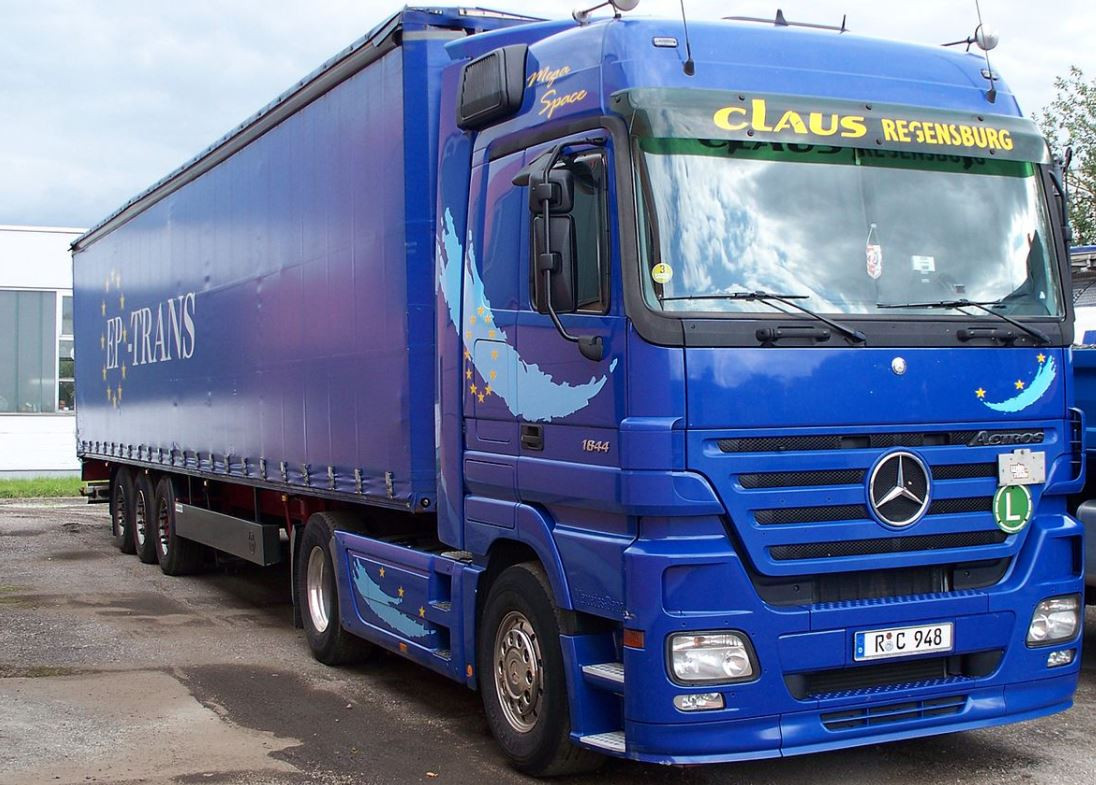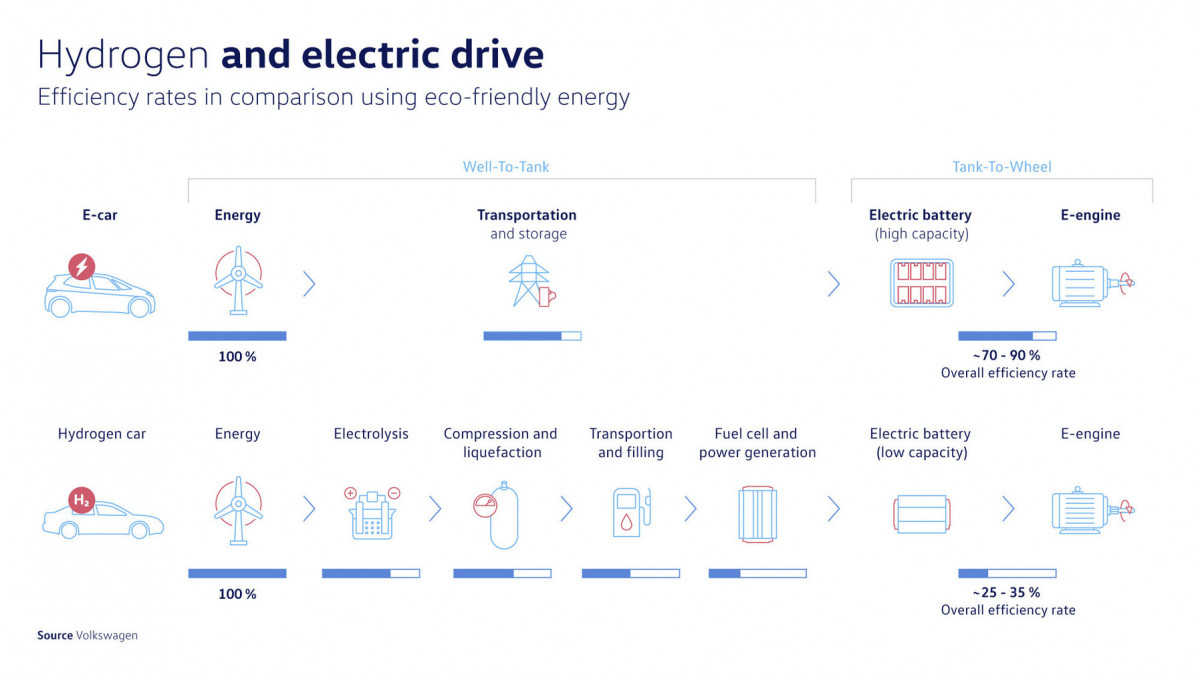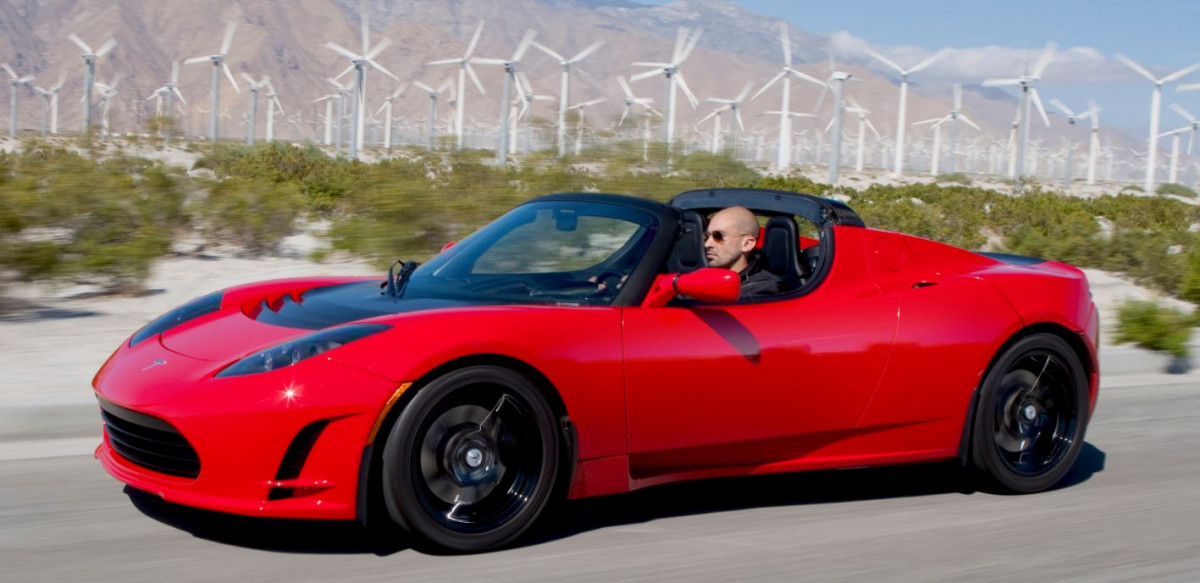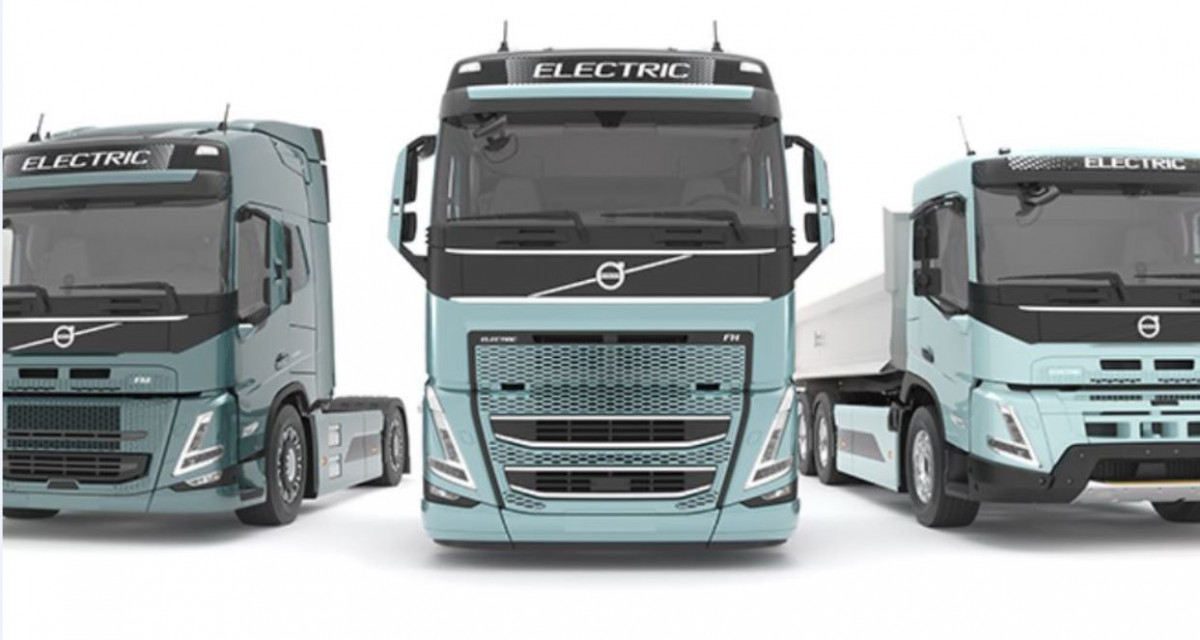Battery-electric trucks will win race against fuel cells and e-fuels - researcher
Clean Energy Wire: Many people remain sceptical that batteries can power large trucks because of weight and range limitations. What makes you think differently?
Auke Hoekstra: People who don't see battery-electric trucks as the best solution often take the hardest business case that a diesel truck can manage – for example, multi-day trips with a team of two drivers, or trips where it is really important to have a range of 2,000 kilometres – and of course, in such cases battery-electric cannot compete with diesel, or with e-fuels, for that matter.
But my research in the Netherlands has revealed that 80 percent of trucks – even the really big rigs, the semis – travel 750 kilometres per day at the very most, and many cover far shorter distances. That's because if you want to cover more kilometres, things become very expensive very quickly, because you have to pay overtime, etcetera. So, in general, you can't make a driver do more than 750 kilometres per day. Therefore, this is the range you have to hit with about 80 percent of trucks.
Additionally, almost all trucks return to base at the end of the day – which creates ideal conditions for charging. We still have this romantic idea that truckers are on the road for weeks on end, away from home. But this scenario has become relatively rare. Most truckers simply move stuff from Rotterdam port to Venlo, halfway to Germany's Ruhr area, to take an example from home. There, the goods are repackaged for further delivery to more specific destinations, to reduce the number of trips. Many truckers do this sort of trip a couple of times per day, and then return home. So, you can charge the vehicle overnight at a default location. This means you don't have a chicken and egg problem – you can arrange for the infrastructure and for the truck at the same time. You simply need to buy one 75 KW fast charger for a normal car, which you can use to charge a truck. These things are not too expensive anymore.
My other big insight was that batteries are getting lighter very quickly and you save a lot of weight when you replace a traditional drive train with an electric one. Redesigning a conventional truck from the ground up using an electric drivetrain can result in almost three tonnes of weight reduction – something the Tesla Semi has done. If you have an electric motor, you can put it close to the wheels – or use several of them, one for each axle or one for each wheel – and it's much more compact, it's all very easy to engineer with electric motors, but almost impossible to do with combustion engines. This is why I think that within five years, we will have 40-tonne battery semis with 800 km of range that could carry more cargo than conventional trucks.
I firmly believe that these factors – no need for a huge range, simple and cheap charging solutions, and the absence of weight disadvantages – will soon form a convincing business case for battery-electric trucks in the calculations of freight companies.
Germany runs several pilot projects to test catenary systems for trucks on motorways. Do you think this technology stands a chance?
Catenaries are also a very good and highly energy-efficient option, but it will be difficult to turn them into reality on a large scale. Basically, the expensive infrastructure constitutes a big hurdle for this technology, because it creates a chicken and egg problem. You have to build them on considerable stretches of roads, otherwise it doesn't make sense to invest in catenary trucks. This is why I don't see it happening.
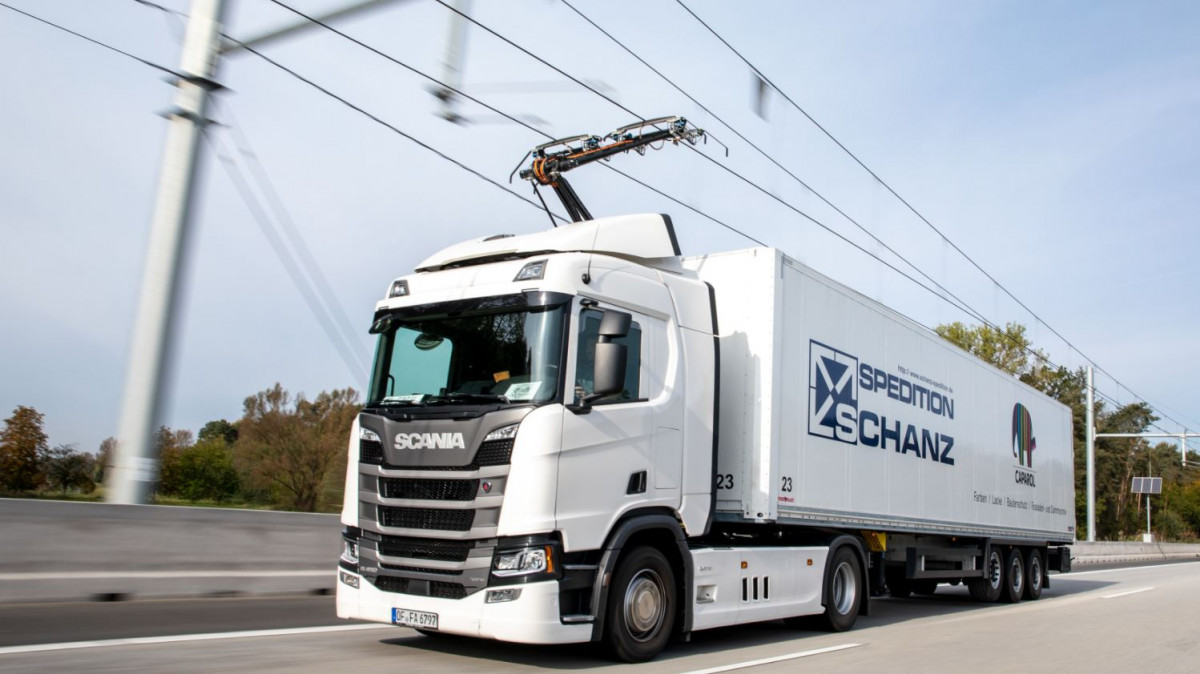
But at the same time, it remains an option. You only need to find enough partners in a certain region who are enthusiastic about it and are prepared to invest serious money. Whenever the right vision and the right circumstances come together – essentially many trucks doing local trips – then catenaries are an excellent idea with a very good business case.
For example, in the Rotterdam area, you would only need to electrify a limited stretch of road to enable the use of trucks with very small batteries. The Rotterdam terminal is a bit of a bottleneck and there is always a queue of trucks, which spend half an hour or an hour inching towards the terminal. This would be an ideal stretch of road where trucks could recharge before leaving for the next trip. In this case, you would only need a high-capacity overhead wire on a stretch of around 10 kilometres.
Scania and Siemens are involved in the German catenary pilot projects – two fairly big players.
Yes, but they are only technology providers. What you need is a certain region that says: 'This is going to work for us.' The people buying the technology from Siemens and Scania will have to invest hundreds of millions of euros to get it off the ground. So, building the trucks and the overhead lines is the easy part, relatively speaking. Getting a large group of investors is the harder part of the chicken and egg problem.
But these considerations make me slightly sad, because they illustrate that we need much more resolve to attack the climate problem. If governments addressed it with the same vigour they have used against the economic effects of COVID-19, these chicken and egg problems could be easily overcome. What is a couple of billions for the German government? Europe is investing trillions in getting the economy up and running again after COVID. Why can't we find a few billions to realise a scheme like that?
Some truck makers, suppliers and the mineral oil industry are pushing synthetic fuels, or e-fuels, as a low-emission option to power heavy duty road transport.
I think it's a silly assumption that combustion engines are here to stay. As far as I can tell, e-fuel trucks have one single big advantage only: they run on very energetically condensed fuel. But in terms of efficiency, in terms of maintenance, and in terms of price per km, they are highly inferior to battery-electric trucks.
Both the production of e-fuels and their use in combustion engines are highly inefficient. So overall, e-fuel trucks need 4-5 times the energy required to power an electric vehicle. That's why I don't see that option going anywhere. The same is true for hydrogen, but to a slightly lesser extent.
So you think fuel cell trucks don't stand a chance either?
Only three years ago, everybody said that battery trucks were a no-go and that hydrogen was the next best choice. On the plus side, fuel cell trucks could become a little bit cheaper to buy than battery trucks as soon as fuel cells go into mass production. But this only concerns the purchase price, and I think they will remain much more expensive to operate. That's because we have to make hydrogen from electricity, and we lose at least half of the energy in the process. Therefore you will definitely need twice as much electricity to power a fuel cell truck than a battery one.
People have all kinds of nice ideas how we could get cheap renewable hydrogen – for example, via pipelines from Morocco, where there is a lot of sunshine and ample space to make it using solar panels. It could work, but I still find it hard to imagine that it will become cheap enough.
An additional problem is the whole business model of semi-trucks, which is based on the idea that you can switch trailers and trucks at will – and semi-trucks are important, because they cause the most CO2 emissions. That model means you have to put everything into the truck, including all the energy you need to make it an independent unit. But hydrogen has the big disadvantage of taking up a lot of space, even if it is comparatively light. You can only get enough hydrogen on board if you elongate the truck. Maybe this becomes possible with new regulations, because we might want to make trucks longer anyway to make them more aerodynamic. But the traditional "boxy" semi-trailer shape in the EU is the result of maximising volume at a given length, and I don't see where all the hydrogen could go.
But on the other hand, you can reduce CO2 emissions significantly with hydrogen, too. If hydrogen overtook the electric vehicle, then we should be very glad from a climate perspective. This way a second challenger to diesel would appear. So, the last thing I want to do is attack hydrogen and say it is bad. It's not bad at all, I just don't see it happening.
Many climate activists argue we should restrict the use of hydrogen to sectors without an alternative route to decarbonisation, and therefore not use it for road transport.
Yes, of course! We only have a limited amount of green energy, and there are much better uses for hydrogen than putting it in a truck – for example, it can be used for decarbonising industry and aviation. I was only talking from the point of view of the transportation companies – why it's harder to make a good business case for hydrogen than for battery trucks.
What sort of timeline do you anticipate for the decarbonisation of the freight sector? When will we see significant numbers of emission-free trucks on the roads in Europe?
I'm always a little bit hesitant to talk about Tesla again, because it makes me sound like a fanboy. But I do remember that in the car market, things really changed when the Roadster hit the market. That really changed the conversation. It changed the whole perception of electric vehicles. The conventional wisdom back then was that you can only use them on short distances in the city. And suddenly this car appeared, and everything was possible.
Within the next couple of years, we'll see the first Tesla semi-trucks on the road. This will have a similarly huge impact on the conversation about electric trucks. You can just point to it and say: "Look, it's moving there, and it is doing 800 kilometres." Suddenly, all those people who say "it cannot be done" within truck companies will hear their boss replying: "Well, our competitor can do it – so you will have to do it, too."
This will result in several new models from many companies five or seven years from now. It's actually not that hard to design an electric truck. Building a VW ID.3 is orders of magnitude more difficult than building an electric truck. For starters, it's really expensive to develop a car that you can produce at a very large scale, at cut-throat prices. It has to be highly optimised, and there are so many players involved. For a truck, it's comparatively simple because the scale at which you produce them is smaller and the design considerations regarding interior and exterior are less critical. Having said that, a fairly big change is using the battery as part of the structure to save weight, like the Tesla Semi does.
Do you think the requisite policies are in place to make the transition happen? Or will the business case be enough?
Policy support to speed up the transition is really, really helpful. Just look at the car market, where the EU fleet emission targets were essential to convince a lot of CEOs. I firmly believe that in four or five years' time, everybody will know that an electric car is simply cheaper overall. They might cost a little bit more in the showroom, but they will be much cheaper to operate due to lower maintenance costs and most of all energy costs. When we come to that point, policy can be limited to the charging infrastructure, to make sure it's available and easy, and the transition will happen by itself.
The same is true for electric trucks, where policy measures could make the sector see the light a little bit earlier. In the end, it will be a no-brainer based on the business case, but for the transition to get there, it helps if policymakers say: "You have to do this." For example, cities can play an important role by banning vehicles that cause too much pollution and noise. This would push some CEOs into thinking: "We need at least one zero-emission model to sell to customers who have problems getting into cities with regular trucks."
I think a lot of cities – at least in the Netherlands – would love to ban combustion-engine trucks in the centre even more than cars, but at present they simply don't have the option because there is no alternative to the diesel truck – the goods simply wouldn't get delivered to the stores. But as soon as that alternative appears, some municipalities could act very aggressively.
Do you see serious movement in the truckmaking industry towards zero-emission vehicles?
It's a very conservative sector. That's why I gave you the example of Tesla - you need someone to demonstrate to them that it's really possible. Apart from Tesla, I don't see any properly redesigned trucks. For example, they all stick to a central motor. This is old thinking - they're basically taking the truck as is, drilling out some drivetrain components to put some batteries in, and then replacing the combustion engine with an electric motor and some more batteries. That's not a redesigned truck – that's basically a retrofit.

